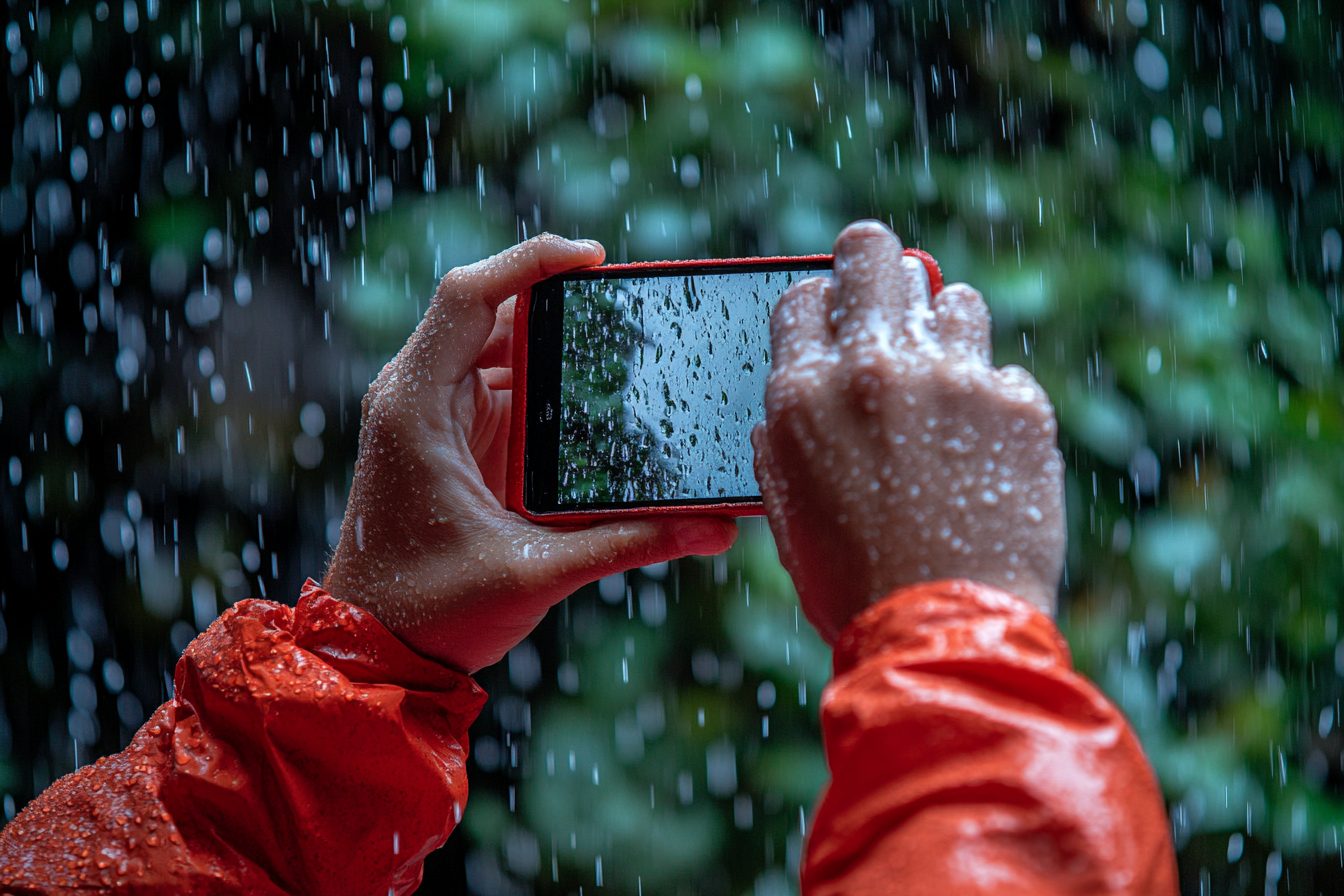Just last Tuesday, I stumbled upon myself vividly consumed with envy. It didn’t come from any of my friends flaunting their latest car nor from my co-worker getting promoted. No, I found myself envious of something more primal: My brother-in-law’s internet speed.
We went over for dinner and I had to send out an email containing a 25MB file. Doing it at home would mean waiting for my coffee to brew, preparing for a fight to the death against the progress bar for my upload speed, and drastically limited my productivity. Home was easier though, as I could just sit there and let the file vanish out of sight. Testing my patience during the upload my working watching a comatose sloth would be mesmerizing. Much to my astonishment, I was able to escape my terminal suffer fest in seconds and gasp in awe.
“Is something wrong?” my brother-in-law asked looking away from the dinner preparations. “No. How fast is your internet?” Eyeing the baffled me looking at the already sent confirmation message.
“Didn’t think it was anything special” he replied.
“Gigabyte fiber?” he inquired with the same inflection and cadence as someone who’s never experienced the agony of watching Netflix buffer every three minutes. “They installed it last month.”
From that point of dinner, I was mentally adrift in the stratosphere working through the literally unfathomable amount of time I’ve wasted listening to websites loading, videos pulsating with inactivity, and files downloading. The very next day, I contacted my provider and inquired about upgrading.
When I was informed my address does not qualify for anything faster than the plan I was currently on, I very nearly gave real thought to relocating. To begin with, I understand, this is ridiculous. Even so, I’m confident that I’m not the only one who is forced to endure this bizarre modern-day phenomenon: digital disconnection envy.
It is the sensation of having toiled towards attaining a goal only to have a secondary glimpse of someone else’s amazing internet time and fall pitifully short. It’s inequality but not quite in the conventional sense. I still vividly remember the day this particular feeling registered with me.
I remember, back in 2008, I had a business trip to Tokyo which happened to be the last destination on my itinerary. In America, there was a form of internet that could be described as “high speed,” but was really no different than dial-up. On this trip, I witnessed a Japanese colleague download a file that would have required almost twenty minutes in my country.
To him, the process appeared to take mere moments. I stifled a laugh. “What do you mean, it’s normal?” The answer made me do a double take. “How much does it matter to you?” He worked with Americans for no reason at all. Coming back home burnt America’s horrific speeds into my self esteem. Attending an international technology conference years later, I joined other participants to take the opportunity to speed test local connections, feeling a strange mixture of hatred and gratitude whenever Singapore, Stockholm or Seoul came up because their internet is substantially faster.
The imbalance caused by technology is particularly heart-wrenching to ponder, not just because it feels random, but rather blended in its deep meaning. As productive citizens, we know that the disparity in this digital era lies in the fact that productivity stagnates because one lacks access to the internet or information, which as previously noted, “fuels life.” The gap between the torment of buffering and the seamless experience of living within digital wonderlands indeed rests on absurdly arbitrary things. At the most primitive level, a person’s geo-location plays a big role. After all, whether or not a telecom exec deems a particular neighborhood worthy of investment can greatly influence someone’s access to these services.
Take myself as an example. I found myself trying to work around a vacation rental in a small coastal town last year. Luckily, the place did not disappoint me by stating that ‘high speed Wi-Fi’ was available, only for me to later find out that the connection was so slow it could not even open an attachment for an email. Furthermore, my mornings started with fighting bandwidth battles while playing video conferences and my children’s Disney+ show attempts, which required consuming every single resource possible.
I was forced to take action on the third day. To speak with an important client, I had to drive over to the town library and make the meeting from there. While parked and waiting for the meeting to begin, I could see the town librarian walk towards her car.
She gave me the look as if she knew me. “Internet?” she asked. “Is it that obvious?” I responded.
Today, a great number of people have taken to the parking area as their office, and she did not miss this point. The librarian in front of me said I was the third person in the area. She has a beach house and is not bothered by this.
When I nodded, she laughed. “I live three blocks that way. Same problem,” the cashier added.
One of us winds up here whenever my husband and I have overlapping zoom meetings.
It was very comforting to converse with someone equally distanced from the system. None of us wants to admit to experiencing digital envy. It’s such a quietly felt emotion that few confront, and that’s what makes it so interesting.
No one wants to agree that they felt pure envy whilst their friend’s Youtube video played in 4k while theirs was buffering in 480p. Envy does seem rather futile, doesn’t it? Nonetheless, I believe that form of jealousy is rampant across societies.
I have even witnessed perfectly normal adults, including myself, get irrationally furious over the digital pace of things. I remember a friend of mine who went through an internet speed test frenzy after experiencing internet speed that was a tad too fast. For some reason, he seemed way too deflated when the numbers at the other sites didn’t come close to the other sites.
I recall seeing the same type of disappointment on a different coworker’s face when he found out his new apartment, while lovely, was just out of range of the fiber optic service. These reactions have nothing to do with megabits per second. Rather, they come from the feeling that there is simply no escaping the fact that the rest of the world have progressed with ease where an opportunity-rich world that relies heavily on digital connectivity, is in fact more accurate.
The internet will do anything to make human life easier, but when Zoom freezes in the middle of a job interview, and the person interviewing you is sitting in silence, a video feed still frozen on their face, leading streaming bandwidth is non-existent, it becomes rather vexing. The world – just like many other technologies before it – claimed to have brought equal opportunity of access to information, leisure and even economic activity, was telling something far from the truth.
Setting aside the global digital divide, which is a lot more dangerous, is the fact that the level of access and ease of communication provides constant service within the same city and in some cases, even the same neighborhood, are vastly different. I personally experienced this disparity in service level when I moved only six blocks away from my old apartment a couple of years back. Same city, same provider, but the service level went from day to night.
Economic activity, for as long as I remembers, has scarbonized communication. When I had my old place I had gotten used to video calls breaking up and cyber chores feeling tedious. Now, everything works seamlessly. So how did things get so different? Simply put, I started feeling plenty instead of scarcity.
Man, that feeling was something else. For a short stint, having a better connection makes everything else feel subpar and only lowers the standards. If, for example, you have never experienced gigabit speeds, you simply mind as well be happy with the DSL.
This was especially the case when you need to enjoy digital ambrosia, as throttled connections make one feel completely shackled. I remember going to one conference that happened at a hotel and the internet was ridiculously fast. In fact, I was so fast that I was downloading fresh software updates while backing up files I didn’t even require. The progress bars filling up was arguably the highlight of the entire thing.
With how my internet is set up, it looked as if I was using a carrier pigeon to send and receive data. I understand how absurd this sounds, but this is exactly why I understand “First-world problem” is nonsensical to be using here. At the same time, there is supposedly people without proper access to clean water while I am here using over-exaggerating access to download speeds.
Aspects of someone having “digital envy” of someone’s digital access makes me wonder. In my opinion, they result from and affect our technologic society. I recall that during my youth, my father would at times bring us along to ‘test drive’ a car, he only intended to see how it felt without any intention of actually buying it.
“He would exclaim, ‘To experience how the other half lives’, while giving a wink to the sales person seated next to him”. The antics of writing a check to purchase a Mercedes S Class while plunging into the plush seats of a coupe was a luxury ride once out of his reach was remarkable. Yet again, I vividly recall how I would love to conduct speed tests on super fast WiFi I kept encountering during my travels.
To me, what is most perplexing about the envy of internet speed are the of the very fast access the bothers – most of them old enough to know tabs of reasonable ero criterion. I vividly remember enjoying the high-speed cable internet once I got rid of the tortoise paced dial-up. Oh, the nostalgia. The first time I experienced a webpage loading in its entirety, instead of one line at a time, was glorious.
At this point in time, the speed might seem lacking. However, perhaps I am just thinking way too much into this. As for the main issue, people have this peculiar habit of resetting their standards far too often.
No matter how fast the connection is for the future, in my strong opinion people will want something more for a long period of time, if not forever. This might be a strange, more refined version of the phenomenon where people measure their achievements against their peers. The same way I learned to live with my modest internet speed.
This one, ‘around town no fiber available’ is one of my favorites. The clear, at least for me, advantage is that fiber not being available is true. Checking if fiber is available in my area, capex is done, so I am willing to wait while hoping for new infrastructure on the ground, but I can only check every month or so.
Whenever I go to friends who have better connections, I do my utmost to avoid thinking about how simple it is for them to stream videos in 4K or download games in seconds. Having fast internet speed isn’t something most people would consider nice, but when it is bogged down in comparison to how others load things, the discrepancy tends to become more and more annoying. If this story has taught me anything, it has to be more considerate towards others in society who are living without access to underdeveloped internet infrastructure and actively work in for it to become history.
Or even better, people should simply decide that envying their neighbor’s internet connection, regardless of how appealing it might be, is simply not a worthy endeavor. In any case, I will still ponder whether my brother-in-law has a spare room I could rent out while I weather the storm of my lackluster internet speeds.







